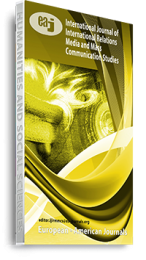The print media played an important role in Nigeria’s independence struggle in the 1950s. It remained a beacon of hope during the dark days of the military dictatorship. However, amid the turbulent waters of Nigerian politics, the fingers of accusation are being pointed at the media (print) for dividing the country along political lines. The press’s constitutional right to hold the country’s rulers accountable to the people would seem to be the most seriously affected. Thus, the argument that the print media is a destabilizing influence in Nigeria’s political evolution is examined in this article. The outcomes of this study are crucial to Nigeria’s democracy’s long-term sustainability. This inquiry uses a content analysis approach. Publications from Nigeria’s leading newspapers were examined to see if the assertion of the press being a source of political instability is valid, and whether the claim should be accepted or rejected. According to the survey, the media published numerous political reports, as evidenced by the experimental hypothesis, indicating that P> 0.05, which means that media coverage has nothing to do with political instability in the country, regardless of the size of the news. According to the study, regulatory agencies should address all concerns related to ethical and professional practices affecting the practice of journalism in the media in order to prevent the dissemination of published material in the media that may cause intolerance.
Keywords: Democracy, Nigeria, Political Instability, Political Stability, Print Media

